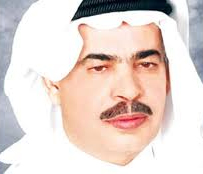 Jeddah, Mar 29: In another significant move to Saudize jobs and prevent cover-up businesses, the Labor Ministry has instructed the so called “owners” of small and medium sized enterprises (SMEs) to work for their firms full-time and register their names with the General Organization for Social Insurance.
Jeddah, Mar 29: In another significant move to Saudize jobs and prevent cover-up businesses, the Labor Ministry has instructed the so called “owners” of small and medium sized enterprises (SMEs) to work for their firms full-time and register their names with the General Organization for Social Insurance.
“Saudi owners working in their own firms should not have any other jobs,” said Hattab Al-Anazi, spokesman of the Labor Ministry. He said the move was aimed at encouraging SMEs with not more than nine workers to employ Saudis.
He said foreigners dominate the workforce in the Kingdom’s SMEs. According to one report, there are at least 250,000 SMEs with not a single Saudi worker. “Most of these firms are run by foreigners who give their real Saudi owners a specific amount annually,” Al-Anazi said.
The ministry’s ongoing campaign, he said, was aimed at driving out illegal workers and stop cover-up businesses that eat away at the national economy. “We want to reorganize work at SMEs to prevent cover-up businesses.”
He added: “We also want to create a culture of real business among Saudis by encouraging real owners of SMEs to work at their firms and supervise their operations, in place of foreign workers.”
According to one report, annual foreign transfers of expats who run SMEs amount to SR 140 billion.
Meanwhile, the Labor and Interior Ministries have continued their joint campaign to track down illegal workers. “This time they are very serious and have got a clear mandate from higher authorities to flush out illegals,” said one prominent expatriate in Riyadh.
He said most shops in the Mursalat district of Riyadh, a well-known market for mobile phones and cable TV networks, have been closed down. “I have seen workers keeping away from their shops in Bathaa when they heard about raids in the popular expat market,” he added.
He believed that the move would have a negative impact on businesses as well as the national economy. “About 50 percent of foreigners are not working for their sponsors. If they do not come to work fearing raids, it will affect businesses and services.”
Most expatriates, who have been doing menial jobs at low salaries, do not want to renew their iqamas because of the SR 2,400 levy and other expenses. They are likely to leave the Kingdom shortly. “The market is not yet matured for total Saudization because Saudis depend on foreigners for many things,” he added.
An Indian business executive in Jeddah said the Saudi government is now resolute to reorganize the country’s labor market and prevent illegal businesses. He said many businesses in the Kingdom had to depend on foreign workers, who are not under their sponsorship, because they were not getting enough visas. “The new labor drive will make thousands of poor foreign workers jobless and it will affect their families back home,” he pointed out.





Comments
Add new comment